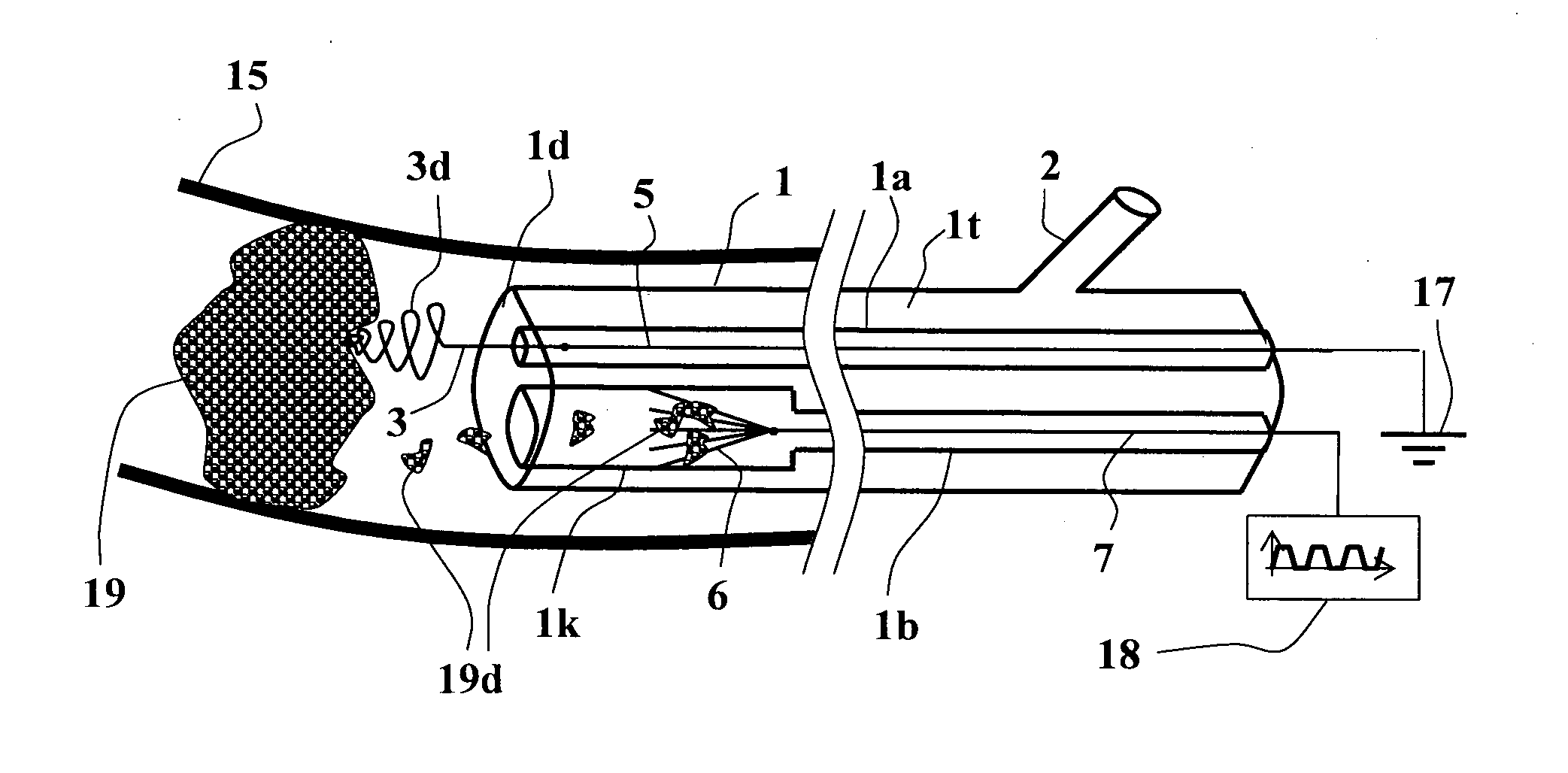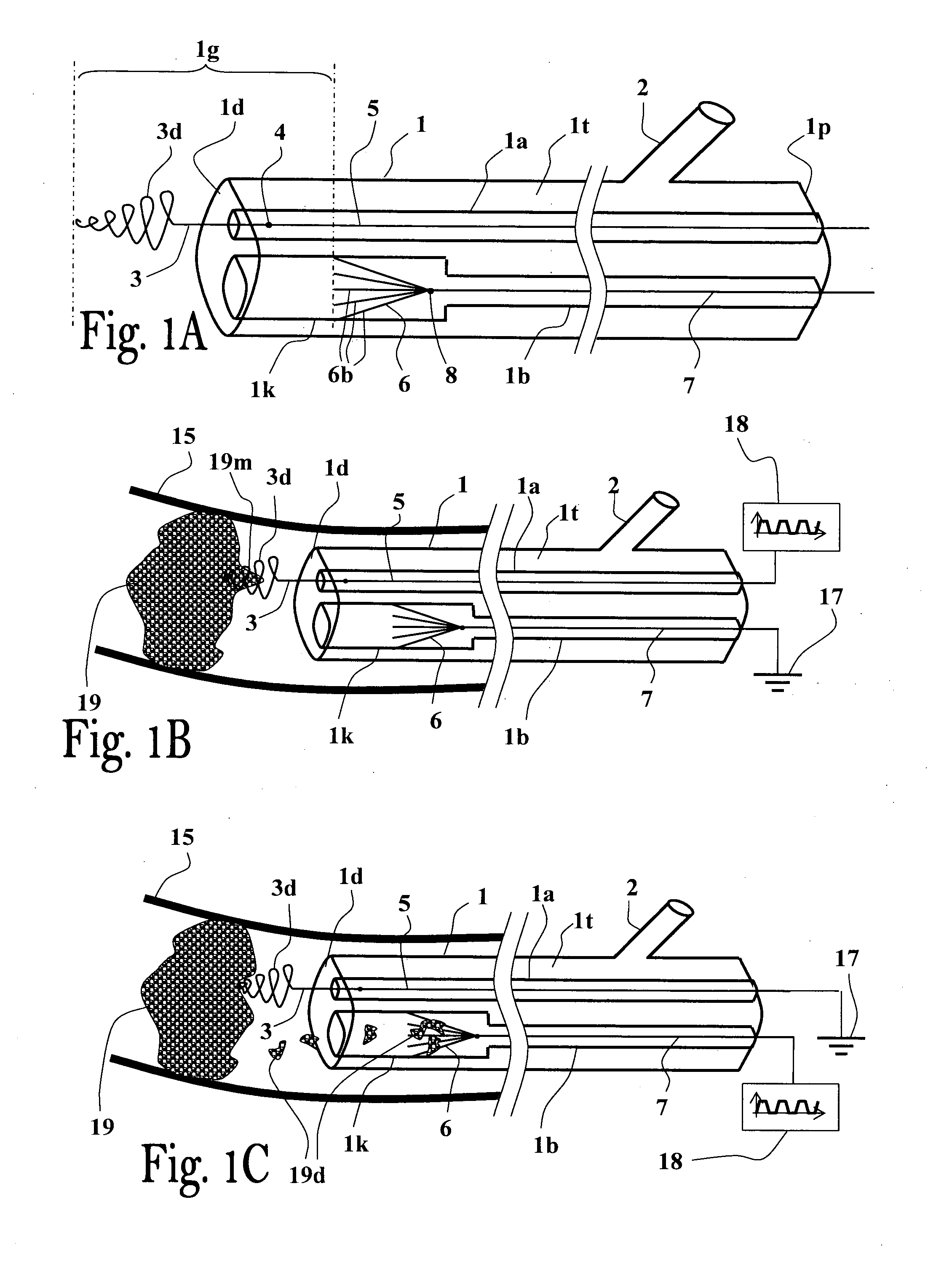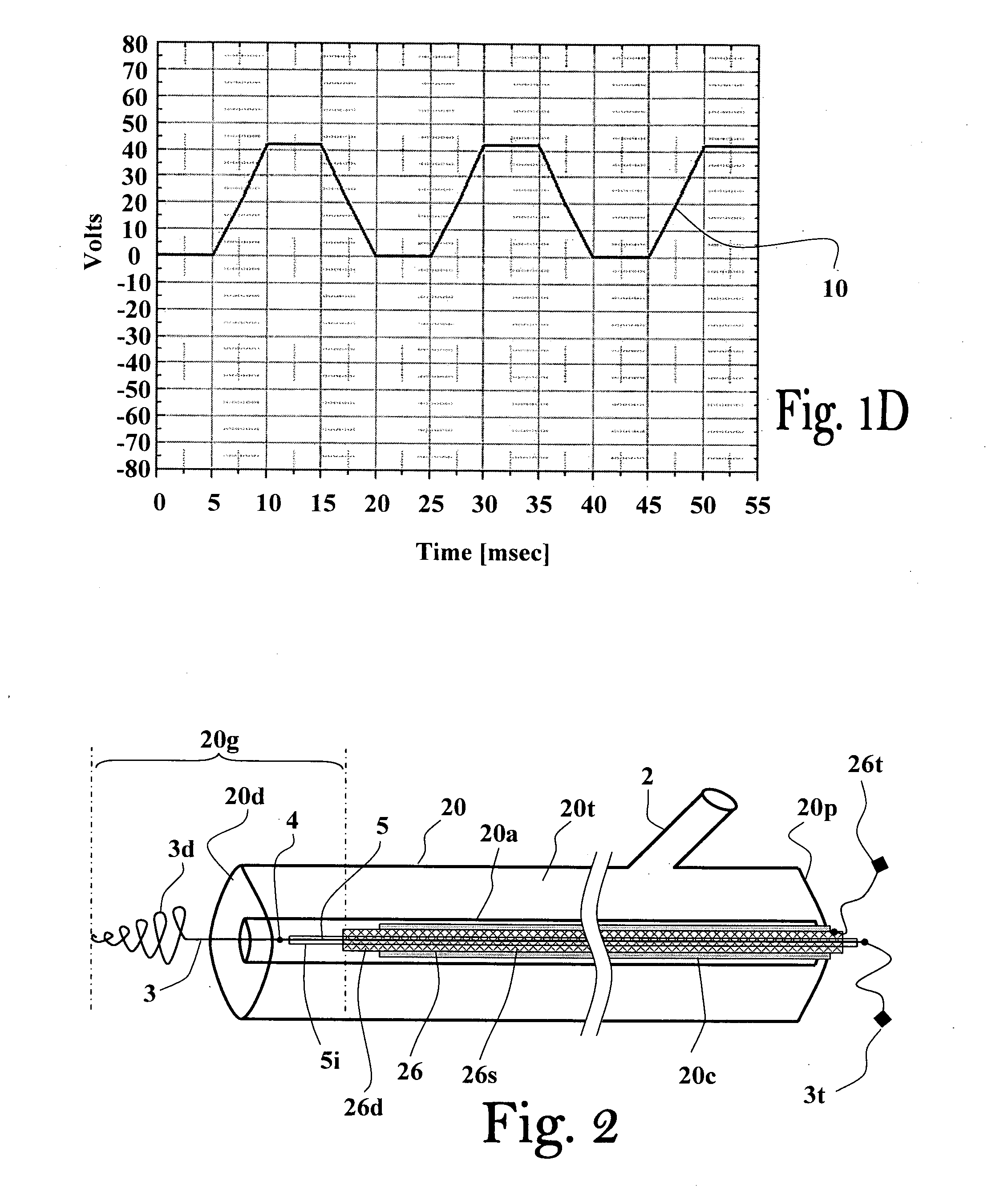Method and apparatus for thrombus dissolution/thrombectomy by an electrode catheter device
a catheter device and electrode technology, applied in the field of electrode catheter devices, can solve the problems of not being able to provide satisfactory solutions for removal or dissolution of thrombosis in blood vessels, and not being suitable for such applications, and achieve the effect of avoiding possible damage to body passages or organs
- Summary
- Abstract
- Description
- Claims
- Application Information
AI Technical Summary
Benefits of technology
Problems solved by technology
Method used
Image
Examples
example 1
Thrombus Preparation: The blood clot was prepared by incubating drained venous blood for 6 hours at room temperature, generating 2 cc whole blood red thrombus, in a 2 cm diameter plastic syringe.
Experiment: 10 cc heparinized blood, at a ratio of 1 unit Heparin per 1 cc blood ratio, was prepared in order to prevent spontaneous clotting of the blood added to the syringe. The catheter was placed in the syringe tube to allow the electrodes penetrate the thrombus, and heparinized blood was added to the tube for full covering of the thrombus with blood. Some blood was drawn back into the catheter.
The electrodes, one made of a platinum wire (0.6 mm diameter) and the other made of copper multi-conductor (1 mm diameter), were connected to an electrical voltage source generator. The electrical voltage source was activated to provide a 44 volts half-wave-pulse signal for a time-period of about 20 milliseconds, and the central (treatment) platinum electrode (embedded in the thrombus) was connec...
example 2
Thrombectomy
Background: The treatment electrode was positively charged and embedded in the thrombus for allowing it to attract the thrombus and thereby assist in its removal / retrieval, by retracting it backwardly (proximally) into the catheter via its distal opening. The animal model chosen is based on the publication: J. Gralla et al. “A Dedicated Animal Model for Mechanical Thrombectomy in Acute Stroke” AJNR Am. J. Neuroradiol. 27:1357-61 June-July 2006.
Positive periodic trapezoidal-shaped signal (as exemplified in FIG. 1D): provided via the thrombus contacting electrode (as exemplified in FIG. 1B).
Equipment & MaterialsC-Arm angiography system (X-ray tube and imaging detector).44 kg farm pig (female).Pulsed power supply 42 V 50 Hz.Digital oscilloscope.Sheath F7.Sheath F9.Guiding wire F7.Y connector.
DescriptionAnimal Care: Sedation was induced by Ketmine 10 mg / kg and mg / kg midazolam, and endotracheal intubation was performed. The general anesthesia was maintained by 2% isoflurane i...
example 3
The treatment electrode embedded in the thrombus is negatively charged, and thus will facilitate its lysis by the negative charge.
The animal model chosen is based on the publication: J. Gralla et al. “A Dedicated Animal Model for Mechanical Thrombectomy in Acute Stroke” AJNR Am. J. Neuroradiol. 27:1357-61 June-July 2006.
Equipment & Materials:C-Arm angiography system (X-ray tube and imaging detector).44 kg farm pig (female).Pulsed power supply 42 V 50 Hz.Digital oscilloscope.Sheath F7.Sheath F9.Guiding wire F7.Y connector.
Description / quantity to be tested:Animal Care: Sedation was induced by Ketmine 10 mg / kg and 15 mg / kg midazolam, and endotracheal intubation was performed. The general anesthesia was maintained by 2% isoflurane inhalant. Vital parameters such as arterial blood pressure, heart rate, and expired oxygen and carbon dioxide levels were continuously recorded. The expired carbon dioxide levels were kept between 30 and 35 mm Hg. After the experiments the animal wa...
PUM
 Login to View More
Login to View More Abstract
Description
Claims
Application Information
 Login to View More
Login to View More - R&D
- Intellectual Property
- Life Sciences
- Materials
- Tech Scout
- Unparalleled Data Quality
- Higher Quality Content
- 60% Fewer Hallucinations
Browse by: Latest US Patents, China's latest patents, Technical Efficacy Thesaurus, Application Domain, Technology Topic, Popular Technical Reports.
© 2025 PatSnap. All rights reserved.Legal|Privacy policy|Modern Slavery Act Transparency Statement|Sitemap|About US| Contact US: help@patsnap.com



